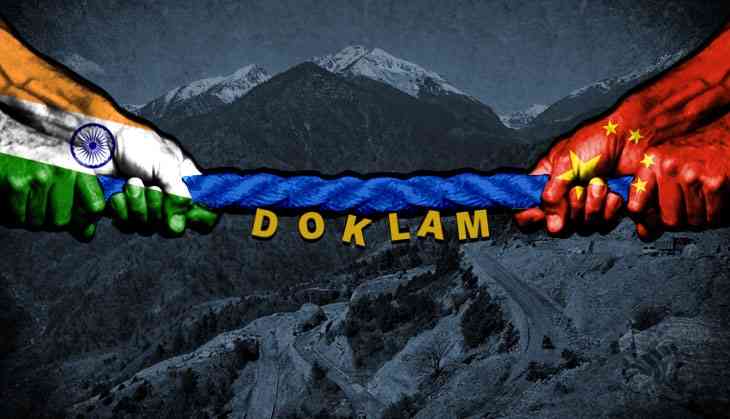
The Ministry of External Affairs today announced “expeditious disengagement of border personnel” at Doklam, signalling that the months-long standoff at the disputed India-China-Bhutan trijunction has come to an end.
In response to queries on Doklam disengagement, the Ministry of External Affairs said, “India has always maintained that it is only through diplomatic channels such matters can be addressed. Our principled position is that agreements and understandings reached on boundary issues must be scrupulously respected”.
While China has also hesitatingly/indirectly admitted to India’s official statement by issuing a face saving statement in which Chinese Foreign Ministry had said –
“In the afternoon of August 28, the Indian side pulled back all the Indian troops and equipment to the Indian side of the boundary and the Chinese personnel have verified this,” Hua said. “The Chinese side will continue to exercise its sovereignty and uphold its territorial integrity in accordance with historical conventions.”
However, upon being asked if the disengagement was from both sides, Chinese foreign ministry spokesperson Hua Chunying repeated the same statement.
“Just now you mentioned that the Indian side has said it is a mutual engagement, but I want to stress that India has withdrawn all the personnel and equipment to the Indian side of the boundary. Chinese personnel on the ground has verified this and Chinese border troops continue to patrol in the Donlong area.”
Some global media houses took it as an excuse to incorrectly portray China as a winner.
BBC: The BBC, in its report titled ‘China claims victory over India in Himalayan border row’, says that “China says India has withdrawn troops from a disputed Himalayan border area, ending a tense stand-off lasting weeks”.
The BBC report says that India’s foreign ministry confirmed troops were “disengaging” at Doklam after agreement between the two countries.
The Washington Post: In the report titled ‘India withdraws troops from disputed Himalayan region, defusing tension with China’, Simon Denyer and Annie Gowen write, “India has begun withdrawing troops from a disputed Himalayan region on the border with China, foreign ministries from the two countries announced on Monday”.
“China had repeatedly and furiously denounced the Indian move as a direct infringement of its sovereignty, demanded an immediate and unconditional withdrawal, and warned that conflict was a real possibility of that didn’t happen,” the The Washington Post report says.
The report then goes on to state that it was “unclear if Beijing offered any concessions in return, such as agreeing to halt the construction of the road”.
There were also few media houses who reported news with neutral and well put statements
The New York Times: The New York Times, in its report titled ‘China and India Agree to Ease Tensions in Border Dispute’ quotes the Ministry of External Affairs (MEA) statement on both countries agreeing to disengagement of border personnel at Doklam.
The report, however, states that the “Chinese Ministry of Foreign Affairs confirmed the agreement on Monday, though it vowed to continue to patrol the disputed area”.
The report by Javier C Hernandez says that it was not immediately clear if “Chinese and Indian officials had made progress toward a permanent solution”.
CNN: The CNN report by James Griffiths says both India and China have “agreed to deescalate a months-long territorial standoff in the Himalayas, ahead of a major economic summit involving both countries”.
The report quotes China’s official Xinhua news agency as saying that India had withdrawn its personnel and equipment “that had crossed the border back to the Indian side”.
The CNN report titled ‘India, China agree to ‘expeditious disengagement’ of Doklam border dispute’ says the standoff was “sparked after Bhutan accused China of constructing a road inside its territory in ‘direct violation’ of treaty obligations. China, which does not have formal diplomatic relations with Bhutan, denied the accusation, contending that Doklam is part of Chinese territory”.
